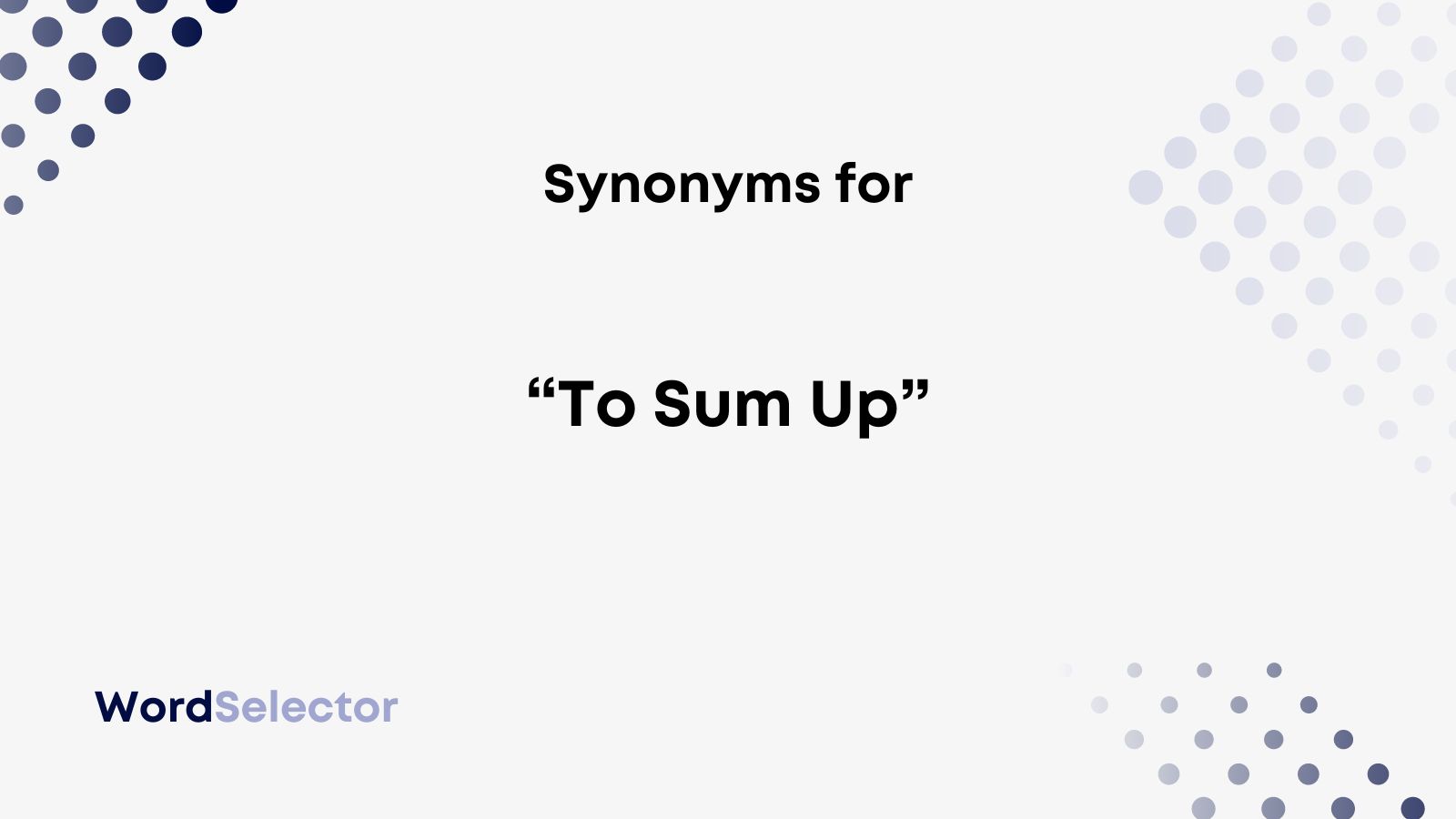You’ve just reached the end of an essay, and you’re trying to summarize your points. However, you’re worried that “to sum up” is a bit repetitive and overused, right?
Don’t worry! You’ve come to the right place.
This article has gathered some alternatives to show you another way to say “to sum up” in academic writing.
Other Ways to Say “To Sum Up”
- Ultimately
- In a nutshell
- In conclusion
- To conclude
- In summary
- To summarize
- All in all
- To put it simply
- To bring everything together
- In essence
- As a final thought
- In short
- To bring everything to a point
- To reiterate
KEY TAKEAWAYS
- “To sum up” is correct and a very popular way to summarize your points in an essay.
- “Ultimately” is a great formal alternative that’ll help you go through your final points in the clearest way.
- Try “in a nutshell” for a slightly more informal alternative.
Keep reading to learn the best phrase to replace “to sum up.” We’ll teach you what to include in a conclusion to help mix up your academic writing.
Alternatively, you can skip to the last section. We’ve explored whether it’s correct to use “to sum up” and the best ways to go about it.
Ultimately (Formal)
One of the best ways to start a conclusion is with “ultimately.” It’s a really unique word that starts a sentence strongly and is bound to captivate the reader.
We recommend including it instead of “to sum up” in some essays. It’s a great way to show that you’ve weighed up all your points throughout the essay.
Of course, as with “to sum up,” you don’t want to use it too often. After all, most essays only have the need for one conclusion, so you best make the most of it.
With that said, this is a surefire way to grip the reader’s attention. It’s formal and lets them know the outcome of your writing.
The clearer you can set up your conclusion, the easier it’ll be for a reader to understand you. That’s why we tend to prefer one-word options like “ultimately.”
These essay samples should also help you to understand it:
Ultimately, it makes more sense for us to explore these options, so I believe this is the best place to start.
Ultimately, this is the only decision you can make. However, I do not think it’s one you should make lightly.
In a Nutshell (Informal)
For something slightly more informal, try “in a nutshell.” Don’t get us wrong, it still works wonders in essays, but it’s better suited to less formal ones.
We recommend using this as a more conversational closer to an essay. It’s a great way to sum up every point you’ve made in a clear and concise way.
What makes this so informal is the use of “nutshell.” You won’t often come across “nutshell” used in this way when writing formally.
However, it’s still a wonderful choice in informal writing. It’s fun and engaging, which will help your readers to understand what you’re writing about when it counts.
Also, these examples should clear a few things up:
In a nutshell, there are some great alternatives to explore. It’s worth looking into them to see which sticks.
In a nutshell, I’ve decided to stop working on this project. It doesn’t seem to be the best thing for me right now.
Is It Correct to Say “To Sum Up”?
It is correct to say “to sum up.” It’s quite a good way to summarize points in an essay. So, you’ll often find people using it in formal and academic writing.
Generally, it’ll be one of the last sentences in an essay. It’s a great way to set up a conclusion when you’re ready to go through it.
For example:
To sum up, this seems to be the best way to move forward. Therefore, I think it’s only fair that we pursue this avenue first.
We also recommend exploring some of the following extensions to keep things interesting:
- To sum up everything that has been stated so far
- To sum it all up
As you can see, these extensions make the phrase slightly longer. It’s worth including them if you’re trying to hit a word count or mix things up without using the same phrase again and again.

